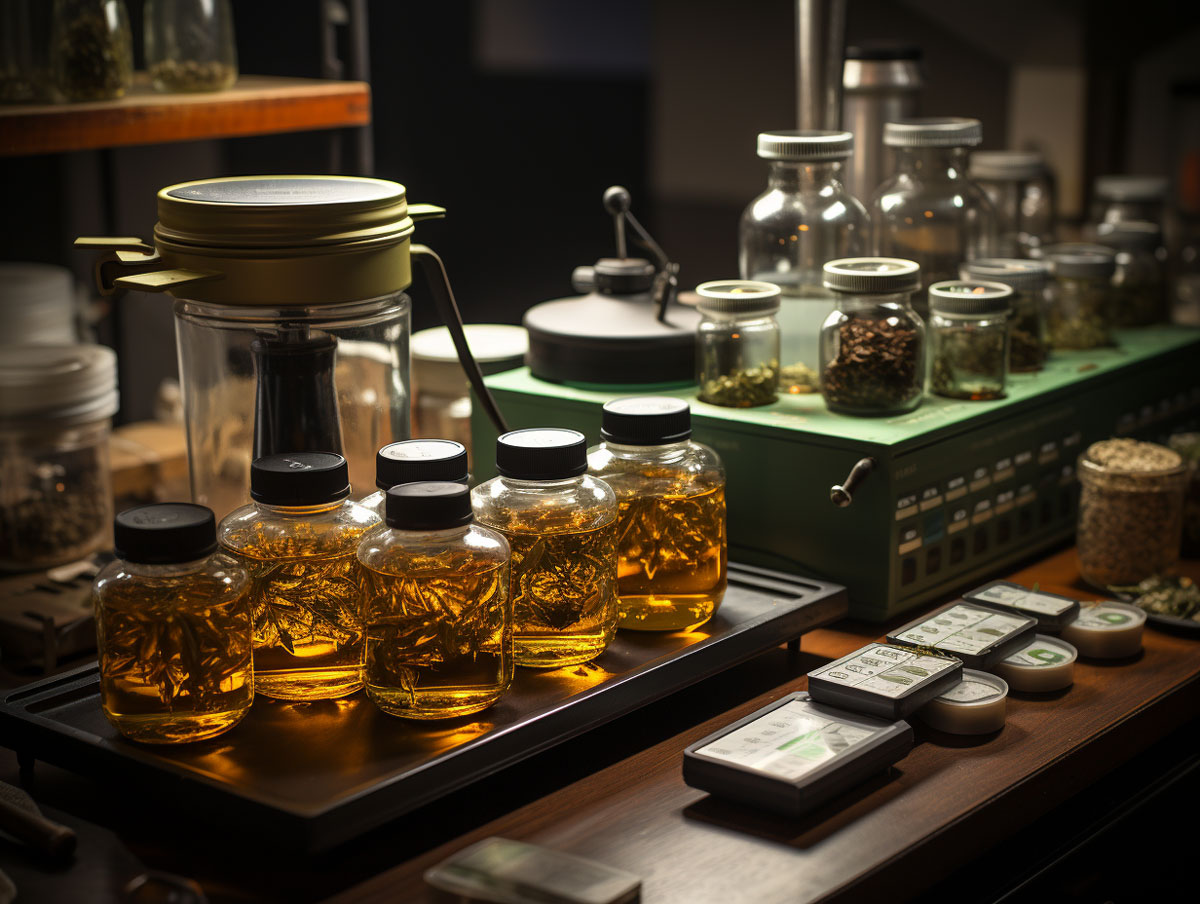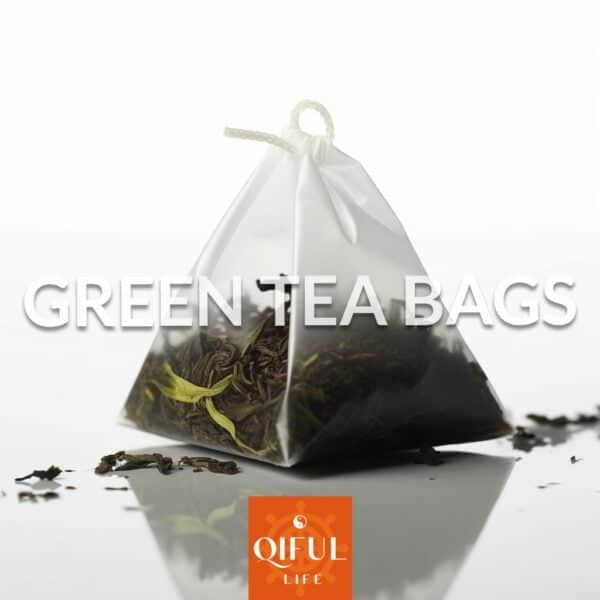I recently spent some time reviewing medical studies on tea and want to show some of the most important ones with you today. These studies were conducted by trusted researchers and provide some insights into the unique effects of tea.
Can Tea Help to Prolong Your Life?
Tea drinking reduces the risk of mortality. This fact is easy on the ears to tea drinkers, and it comes from a study of 9,000 seniors aged 80+. There were equally notable changes in adults aged 60 and over, as frequent tea drinkers had a 10% lower mortality risk than infrequent ones.(1)
Another trial looked at 100,000 Chinese men and women and classified them as either habitual tea drinkers (3+ cups a day) or non-habitual tea drinkers (less than 3 times a week).
The former lived 1.21 years longer than the latter. They were also less likely to have any series heart complications. Habitual tea drinkers had a 22% lower risk of death from heart disease/stroke and a 15% overall lower risk.(2)
UK Tea Study
Most major medical tea studies are conducted on Chinese participants, but there are a few exceptions. One of them studied nearly 500,000 men and women in the United Kingdom.(3)
They followed up after around 11.2 years and found lower all-cause mortality in participants who drank 2 or more cups of tea a day. This study focused on black tea, the tipple of choice in the UK, but it noted more consistent results when the tea was consumed without milk or sugar.
In truth, it doesn’t really matter how you drink your tea. Sure, you might get more benefits if you abstain from milk and sugar (likely because the latter is calorific and associated with health problems when consumed to excess), but you’ll still getting benefits from the tea. As long as you’re drinking it and enjoying it, you’re fine.
Cheer up with Tea
Caffeine gets a bad press, and it’s easy to see why, as this common stimulant can cause some health issues when consumed in excess. But in tea, it seems to provide some benefits, as a 2018 report found that rates of depression were lower in tea drinkers.
Surprisingly, it found that caffeine could help with depression. I’ve been there. I know how good a cup of tea can feel after a long day. I also feel like a living variation of the “don’t speak to me until I’ve had my coffee” meme. But this isn’t quite what the study was referring to. It’s talking about actual, clinical depression and the symptoms associated with it. It’s not about making people feel a little better when they sate their caffeine addiction after a long day. It’s about a gradual and deep-seated improvement.
It’s an eye-opener when you consider that caffeine generally has bad connotations. It’s a drug, after all, and a stimulant at that. It’s also addictive and so it needs to be treated with caution. Furthermore, this study was conducted on Korean adults and could have cultural connotations. It doesn’t mean that drinking more coffee or higher strength tea will suddenly improve your mood (although drinking one after a long day can certainly have that effect).(4)
Warnings About the Caffeine in Tea
Consuming caffeine has clear pros and cons. You don’t have to look long and hard to find studies on its benefits, but there are also reports suggesting it causes heart problems. They are even easier to find! (5)
However, most of those issues stem from the use of caffeine pills/energy drinks/high-strength coffee. Tea doesn’t have nearly as much caffeine.
Many varieties of tea have an average of 14 to 61mg per cup. This is true for white, green, black, and dark tea, with the latter having the highest concentration. A “moderate” amount of caffeine is between 50 and 300mg a day. So, if an individual were to drink strong black tea, they could drink 5 cups per day without exceeding the safe levels according to medical tea studies.(6)
Conversely, energy drinks can contain around 170mg per can, which means just 2 cans are enough to exceed those safe levels.(7)
Drinking Fermented Tea Could Be Beneficial
Kombucha is a fermented tea that has recently surged in popularity. It’s tangy, naturally low in sugar, and could provide some health benefits. It’s also delicious and is usually a big hit with tea drinkers. Unfortunately, while we’ve been consuming kombucha for thousands of years, empirical evidence is a little thin on the ground, to say the least.(8)
However, we know that the drink has many beneficial compounds. You don’t have to look far to see the benefits of fermented foods either, and I’m not just talking about those commercials of surfing/skating men and women who drink a shot of yogurt and turn into middle-aged superheroes! (9)(10)
Tea and Blood Pressure
In 2020, researchers pored through 1119 trials to find links between tea and blood pressure. They used strict criteria to narrow their search down to just 5 trials, covering 408 individuals. They analyzed tea consumption among in the group and found that regular tea drinking could reduce both diastolic and systolic blood pressure. The longer the habit, the more notable the benefits.(11)
After adjusting for different types of tea, green tea delivered more noticeable results than black tea.
Tea May Have a Positive Impact on Heart Disease
High blood pressure is a symptom of cardiovascular disease, so tea consumption links naturally to reduced rates of this chronic illness.
A study involving over 37,000 Dutch people examined the cardiovascular effects of tea consumption over many years. Researchers questioned participants and then observed them for 13 years to measure incidents of cardiovascular morbidity and mortality.
Consumers of tea were much less likely to suffer cardiovascular incidents. What’s more, the researchers found that those consuming 6 or more cups a day were less likely to be diagnosed with coronary heart disease. There was also a reduced risk for coffee drinkers, but no links were found between coffee/tea and strokes.(12)
Tea’s Effect on the Throat
Do you drink your tea with milk? Do you brew at a slightly lower temperature (recommended for white and green tea) or go all-out at 100°C? It impacts taste. It may also reduce your life expectancy (which goes against what I mentioned above) and it’s largely down to the liquid’s heat according to one medical study on tea. (13)
Tea tastes vary by country and culture. In many English-speaking countries, including the United Kingdom, Australia, and the United States, people prefer black tea, often consumed boiling with milk or cream. Many drinkers also let the liquid cool before drinking.
In Russia, South America, and the Middle East, people often consume tea very hot.
The issue isn’t with tea itself but with the damage hot liquids can cause to the esophagus lining. This damage can accumulate over time, leading to long-term problems. The same risks likely apply to coffee and hot chocolate drinkers if they consume their beverages at high temperatures regularly.
You can avoid these risks by drinking tea at cooler temperatures. For example, the best temperature for brewing green tea is around 80°C. After allowing it to brew, it should have cooled to a more tolerable level. Black tea, usually brewed between 95 and 100°C, benefits from 3 to 5 minutes of brewing. Many drinkers add milk or cream and wait before drinking, which helps lower the temperature.
Green Tea Extracts and Liver Failure
In 2018, the BBC reported on a middle-aged man, Jim McCants, who was left needing a liver transplant after taking supplements; a 16-year-old boy taking green tea supplements was admitted to hospital with an array of issues. These reports makes for stark and very concerning reading if you take these supplements on a regular basis. (14)(15)
The issue is not the tea itself, or even the extracted compounds. It’s the way that these compounds interact with the body when they are consumed in synthetic form, with one study finding that “chronic consumption of synthetic antioxidants has been linked to various diseases”. (16)
Summary: Medical Tea Studies
With thousands of years and billions of drinkers to consider, numerous studies have explored tea drinking. Most of these studies highlight its health benefits, such as reduced mortality risk and improved heart health. However, moderation is key, as some studies caution against excessive use of green tea supplements and drinking boiling hot tea.
These medical studies on tea are fascinating. I learned many ways that tea influences the mind and body. It’s one of the most popular beverages in the world. Many people regularly drink tea, and unlike other popular drinks like beer, wine, or soda, it’s a habit worth having.
If you’re interested in learning more about tea, explore some of these studies yourself. You can find links to all of them below.
References
- https://www.ncbi.nlm.nih.gov/pmc/articles/PMC3830687/
- https://www.sciencedaily.com/releases/2020/01/200109105508.htm
- https://www.acpjournals.org/doi/10.7326/M22-0041
- https://www.mdpi.com/2072-6643/10/9/1201
- https://www.hsph.harvard.edu/nutritionsource/food-features/coffee
- https://pubmed.ncbi.nlm.nih.gov/19007524/
- https://www.hsph.harvard.edu/nutritionsource/caffeine/
- https://pubmed.ncbi.nlm.nih.gov/30527803/
- https://pubmed.ncbi.nlm.nih.gov/35075759/
- https://pubmed.ncbi.nlm.nih.gov/28945458
- https://pubmed.ncbi.nlm.nih.gov/32507441/
- https://pubmed.ncbi.nlm.nih.gov/20562351/
- https://onlinelibrary.wiley.com/doi/full/10.1002/ijc.32220
- https://www.bbc.co.uk/news/stories-45971416
- https://www.ncbi.nlm.nih.gov/pmc/articles/PMC3746392/
- https://www.mdpi.com/journal/antioxidants/special_issues/synthetic_antioxidants




